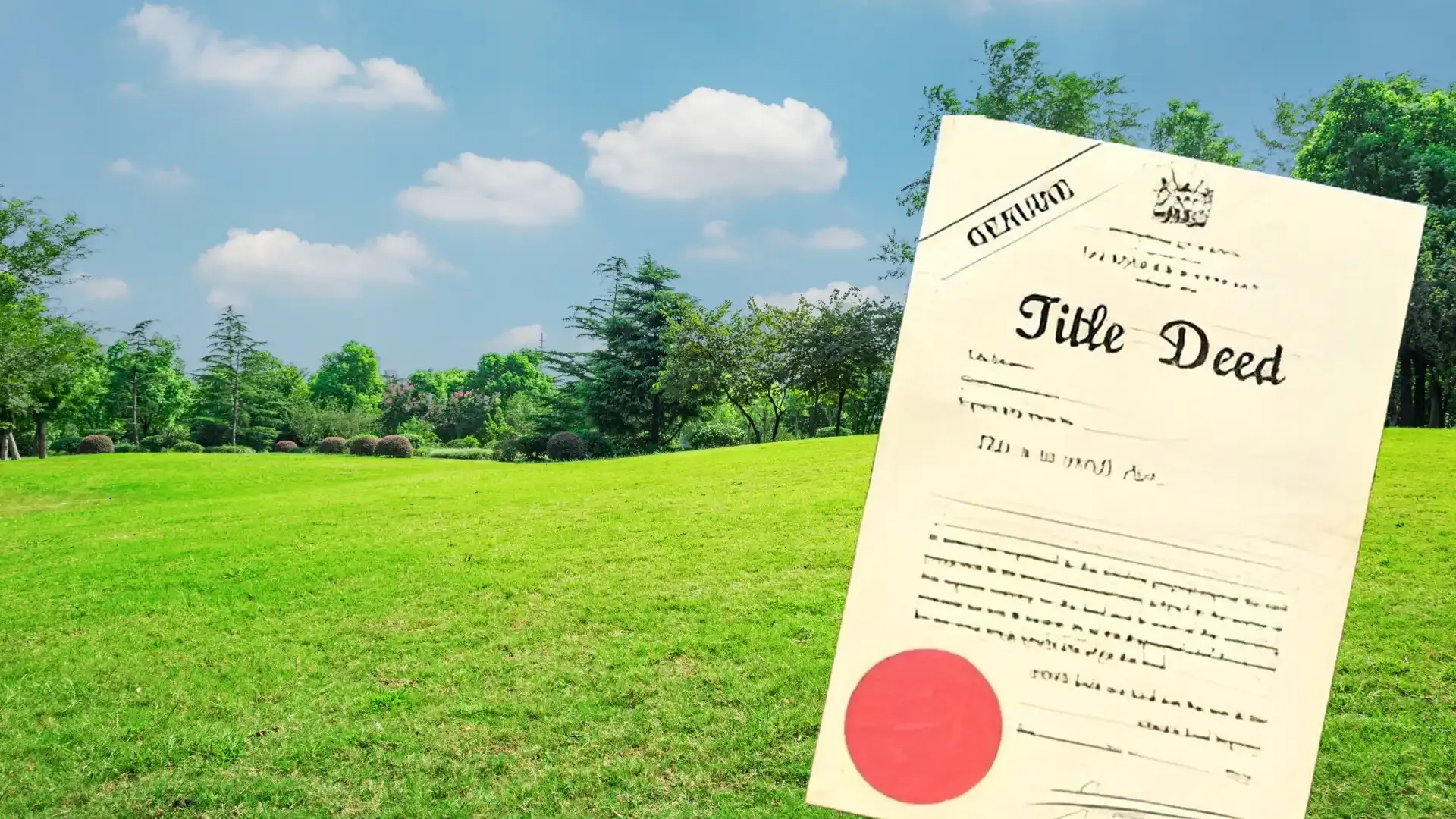Legal Supremacy of Registered Title Over Allotment Letters
Indefeasibility of title is a cornerstone principle in Kenya’s land law framework. It assures that once a land title is legally and properly registered, it becomes conclusive evidence of ownership that is immune from competing claims except in cases of proven fraud, misrepresentation, or illegality. This principle, rooted in Section 26 of the Land Registration Act, underscores the finality and legal security the land registration system is designed to provide.
In a landmark decision, the Court of Appeal in Civil Appeal No. E020 of 2023: Ketan Navinchandra Doshi v Hon. Justice Charles P. Chemutut & Others reaffirmed the legal supremacy of registered title deeds, effectively drawing a line under a long-standing debate: a registered title deed prevails over unperfected allotment letters.
Particulars of the Case
In the case of Doshi v. Chemutut & Others, the dispute concerned land in Mombasa claimed by Hon. Justice Charles Chemutut through a 1992 letter of allotment. The appellants, Mr. Ketan Doshi and the Walkers, held registered titles issued in 2006 and 2017, respectively.
While the Environment and Land Court initially upheld the allotment letter, the Court of Appeal overturned that decision, reaffirming the legal dominance of the registered title.
This judgment clarifies the legal hierarchy governing land documents in Kenya and the consequences of failing to formalize land claims through proper registration.
Understanding the Legal Hierarchy of Land Ownership Documents
The Court highlighted that Kenya’s land law recognizes a structured hierarchy of documents, with the registered title at its apex. The key tiers include:-
1. Title Deed
- The most authoritative document in land ownership.
- Serves as conclusive proof of ownership once registered.
- Reflects the complete chain of transactions including transfers, charges, and encumbrances.
- Can only be challenged on grounds such as fraud or illegality.
2. Green Card
- The official land registry record for each parcel.
- Includes ownership history, encumbrances, caveats, and current status.
- Often used to resolve inconsistencies between physical title deeds and registry data.
3. Supporting Documents
- Includes certificates of lease, sale agreements, succession documents, and letters of allotment.
- These are important in tracing ownership history but do not confer proprietary rights unless followed by registration.
4. Community Land Documentation
- Pertains to communal land under the Community Land Act.
- Valid ownership depends on registration in the communal land register.
Allotment Letters: Offers, Not Ownership
A key legal clarification in this case was the non-proprietary nature of allotment letters. These documents, the Court emphasized, only indicate intent to allocate land and confer no ownership rights until all conditions are met and registration is effected.
In this instance, the Respondent failed to act on the 1992 allotment letter for over two decades. There was no attempt to formalize the allotment, pay requisite fees, or secure registration. This inordinate delay and lack of compliance fatally undermined the claim.
Furthermore, the Court dismissed outdated and invalidated survey data used by the Respondent, reiterating the importance of referencing current survey records in land disputes. The Appellants’ titles, derived from updated survey information, were found to be valid and enforceable.
Fraud Allegations: A High Legal Threshold
Another critical takeaway from the judgment is the evidentiary threshold required to plead fraud. The Court reaffirmed that fraud must be specifically pleaded, particularized, and proved to a standard higher than the balance of probabilities. The Respondent failed to meet this bar.
Conclusion
This judgment serves as a judicial reaffirmation of a fundamental principle that land ownership in Kenya is perfected through registration, not intention. Courts will uphold title deeds over incomplete or outdated documentation, regardless of how long the latter has been held.
For landowners, legal practitioners, and public authorities, this case is a compelling reminder that procedural compliance is key. Ownership flows not from holding old paperwork but from meeting legal requirements and securing proper registration.
In the world of property law, it is registration, not possession of paperwork—that transforms a claim into a right.
Contributors:
Jane Mugo( Partner & Head of Unit)
Joan Maina (Associate)
Related blogs & news
The Affordable Housing Relief Takes Effect
Through the Finance Act 2019; Head A of the Third Schedule to the Income Tax Act was amended. The amendment will allow buyers to get a relief of 15% of gross contributions capped to KSh. 108,000 per year or KSh. 9,000 per month instead of the earlier amount of 15% of gross emoluments; closing a loophole that allowed persons to get a relief that is higher than the contributions made....
Temporary closure of Nairobi and central registries at Ardhi House
The Ministry of Lands and Physical Planning has issued a Public Notice stating that the Nairobi and Central Registries located at Ardhi House shall be temporarily closed between Monday 24th February 2020 and Friday 13th March 2020 for auditing of Records....
Notification of Conversion - A Shift From ‘Land Reference Numbers’ To “Parcel Numbers”
For foreigners who wish to visit Kenya for various reasons either business visits, family visits or tourist vists they can now apply for their visas (Evisa) online. The Evisa must be applied for and approved prior coming into Kenya. The application procedure is detailed below....
Salient Features of the Sectional Properties Act, 2020
The Sectional Properties Act, 2020 laws of Kenya (the “new law”) has effectively repealed the Sectional Properties Act of 1987, laws of Kenya (the “repealed law”)....
Sectional Properties Act
Pursuant to a notice issued by the Ministry of Lands and Planning (“MOLPP”) on 9th May 2021, long term leases supported by architectural drawings shall no longer be registered with effect from 10th May, 2021....

Share this blogLinkedIn Twitter Facebook Print